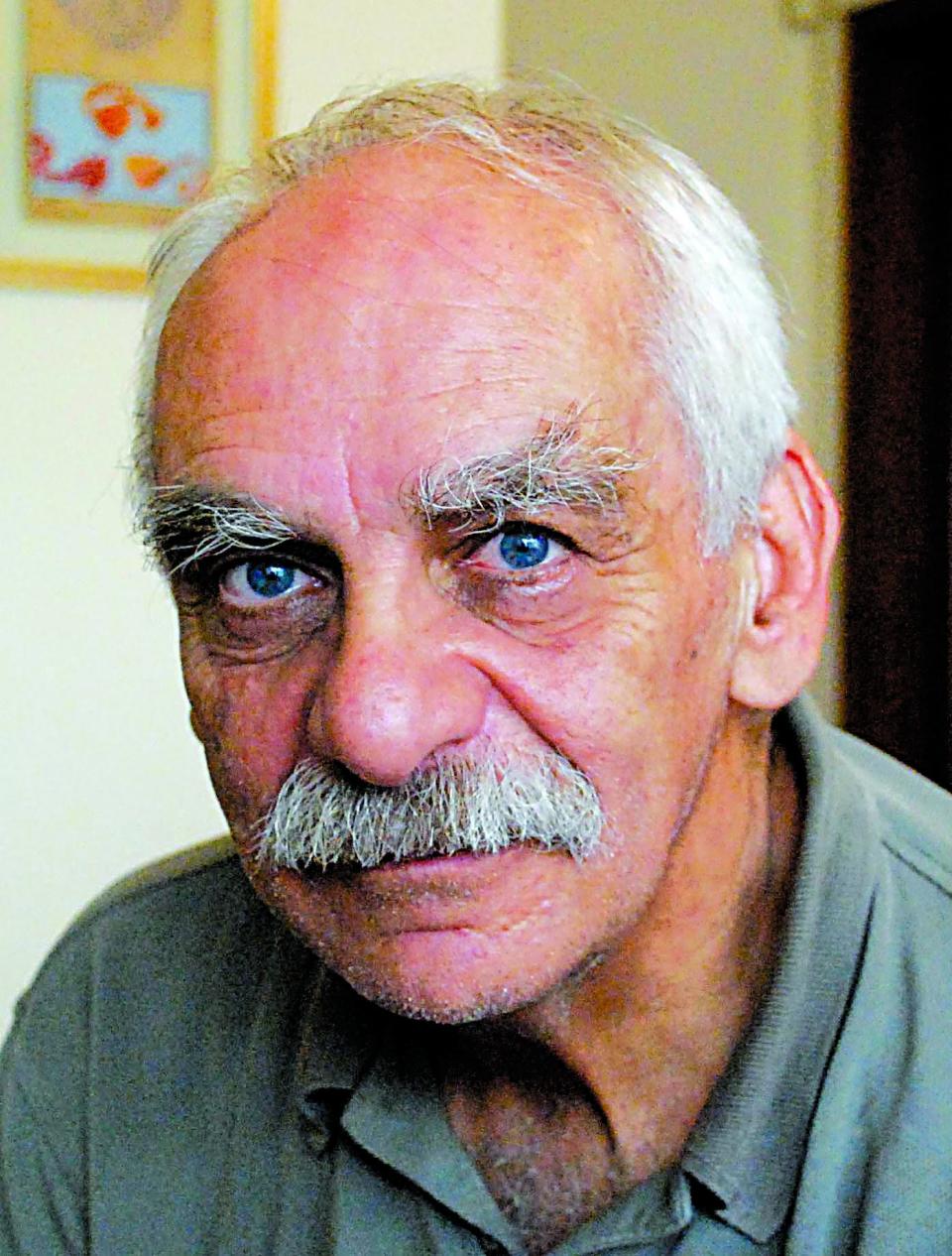Azzi: Damar Hamlin's dream is alive. Time to play, kneel, pray.
- Oops!Something went wrong.Please try again later.
- Oops!Something went wrong.Please try again later.
Only one pro football player has ever died on an NFL field. On Oct. 24, 1971, Chuck Hughes, a 28-year-old wide receiver for the Detroit Lions collapsed — in a game against the Chicago Bears — and died of a heart attack when an undiagnosed blood clot dislodged after he was tackled.

The game was resumed shortly after Hughes was transported to a hospital in a futile attempt to save his life.
Monday night, nearly 24 million viewers watched — I was one of them — in consternation and horror as a Buffalo Bills safety, 24-year-old Damar Hamlin, collapsed on the field after colliding with Cincinnati Bengals wide receiver Tee Higgins in what was a clean and conventional tackle.
That game has yet to resume.
"I think the first thing: This is about Damar Hamlin," former player Ryan Clark said on ESPN. "It's about a young man at 24 years old that was living his dream. That, a few hours ago, was getting ready to play the biggest game of his NFL career. And there's probably nowhere else in the world he wanted to be. And now, he fights for his life."
"When Damar Hamlin falls to the turf," Clark continued, "and when you see the medical staff rush to the field, and both teams are on the field, you realize this isn't normal. You realize this isn't just football."
It wasn't just football. It was a live-screen passion play before an audience of millions of athletes and fans atavistically responding to the drama of competition and survival.
As I write this Thursday morning an update from the Buffalo Bills has crossed the wires stating that "Per the physicians ... Damar has shown remarkable improvement over the past 24 hours. While still critically ill, he has demonstrated that he appears to be neurologically intact. His lungs continue to heal and he is making steady progress ..."
That's wonderful news and the focus is shifted to whether the game should be replayed.
I don't believe it should. Thankfully, the NFL agreed and announced Thursday night the game will not be resumed.
I understand why many believe it should have been replayed: prospects of unprecedented ratings, fervent fans, seedings, home-field advantage and a possible bye-week are all at stake, but my heart — and head — said don't do it.
I cannot but imagine that player safety would have beencompromised by returning too soon to competition. As former player and ESPN analyst Marcus Spears tweeted: “ ... another aspect of why this game should be postponed is because of the type of focus it takes to play a professional football game is as intense as it gets and I truly don’t believe these men can get that back ...”
It's important to remember, too, that all this is in context of a violent game played on billion-dollar plantations to engage fans and advance the financial interests of the NFL and its owners.
The NFL is an oligarchy that has never had a Black owner in its over 100-year history; where only two of its 32 owners are minorities, neither an African-American; where social-justice controversies, press reports of domestic-violence, painkiller and drug addictions, rarely affect its ratings; where the average length of a player's career is just 3.3 years.
Professional sports — especially football and basketball — have enhanced meanings for players of color. In a country where, after centuries of discrimination and racism, the generational wealth of African-Americans is still but a fraction of white generational wealth, athletes in communities of color have found arenas where gifted athletes not only can successfully compete but have opportunities to provide for their families and futures.
Decolonizing pro football has been a slow, imperfect, arduous — and incomplete process. From the days when Black athletes weren't considered smart enough to be starting quarterbacks, through the yet-unfulfilled promise of hiring more Black head coaches, players of color (today over 70% of active athletes in the NFL) have struggled for generations to be considered the equals of their white competition.
Remember that it took until 2021 for the NFL to agree to end "race-norming," an index which assumed that Black players had lower cognitive functions than white players, and which may have prevented hundreds of Black players suffering from dementia from sharing in a $1 billion settlement of a concussion claims award.
Remember, too, Colin Kaepernick, Brittney Griner, Layshia Clarendon, Tommie Smith and John Carlos, Muhammad Ali, The University of Wyoming's "Black 14," Mahmoud Abdul-Rauf, and all in the NFL who united kneeling in prayer during the national anthem. Remember all that has been risked to challenge privilege and patriarchy, to provide health care and protection to vulnerable Americans, to advance the American Dream.
Football is a dangerous and violent sport.
We know the owners know that because of the amount of medical capacity present at each game. Today, I wonder if, in pursuing his dream, Damar Hamlin wasn't made more vulnerable by having to play 17 games instead of 16, of playing a NFL schedule that insists some players compete on Thursday nights following Sunday matches.
Of being made vulnerable by interests which prioritize profit over humanity.
Damar Hamlin's dream was to compete in the NFL, to provide a house for his mother, to be part of the American Dream.
Monday night Damar Hamlin died, I believe, and was resurrected, not just because CPR and oxygen were administered but because of those who knelt alongside believed in the American Dream, believed in the power of prayer, believed that all people are created equal.
Damar Hamlin's dream, I believe, is still alive.
We play. We kneel. We pray.
This article originally appeared on Portsmouth Herald: Azzi: Damar Hamlin's dream is alive. Time to play, kneel, pray.

